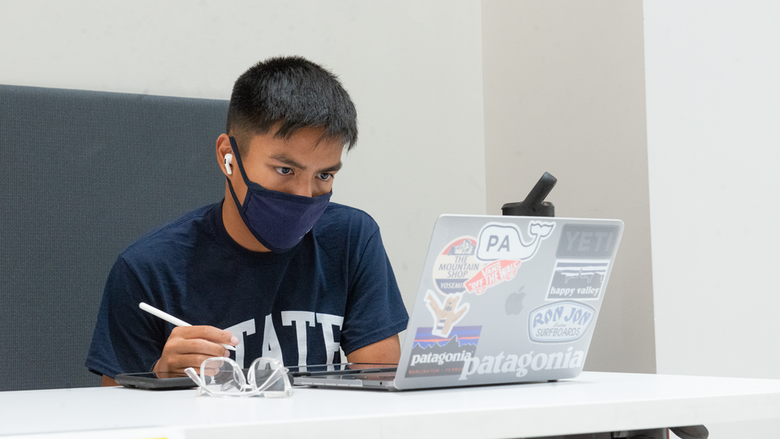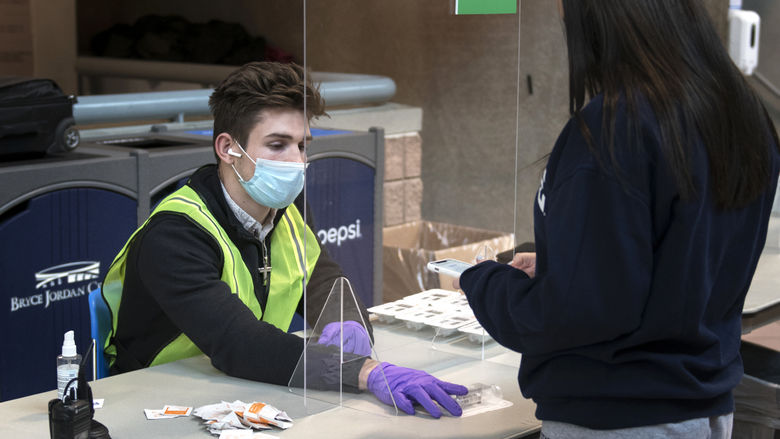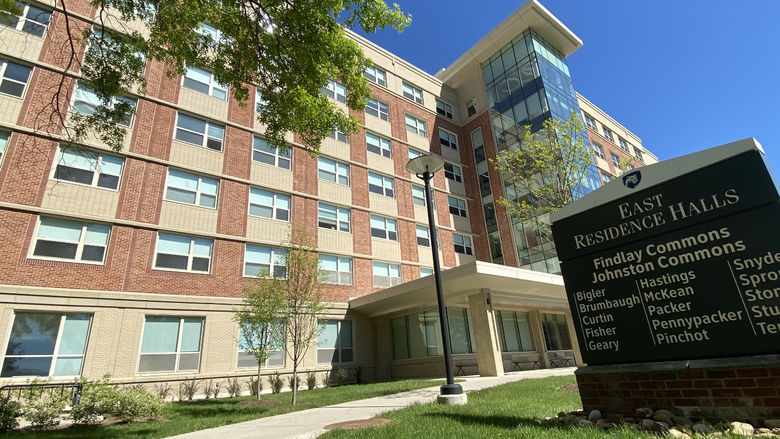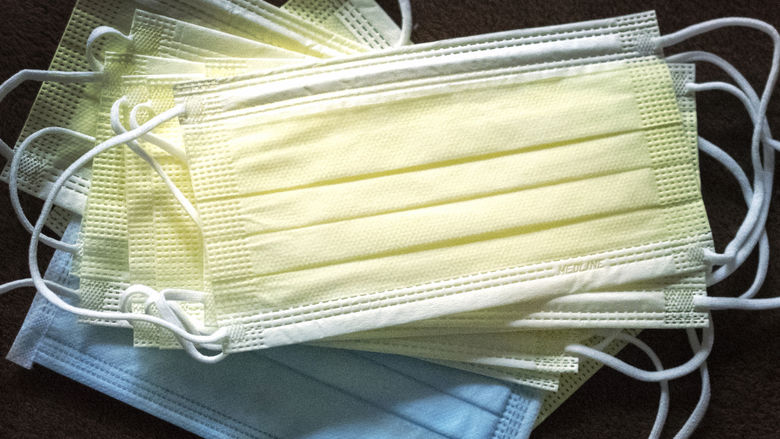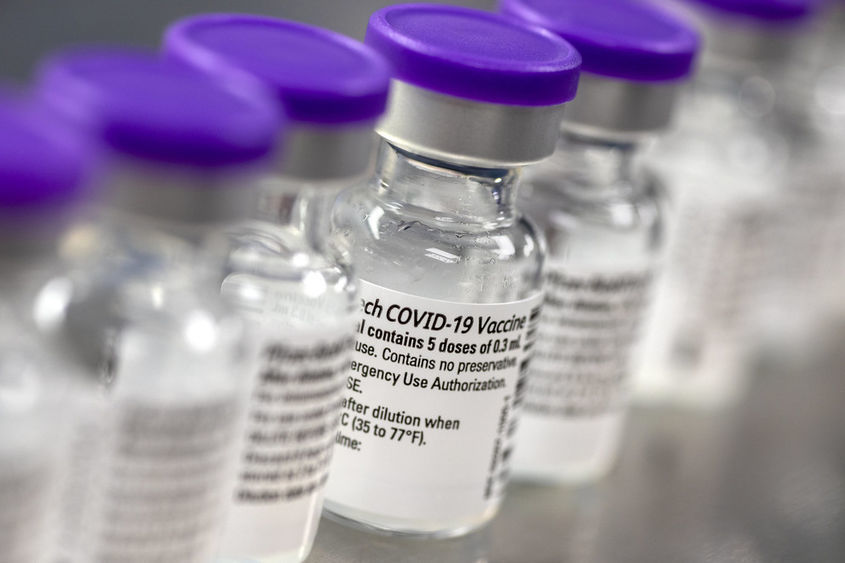
COVID-19 vaccines as well as tests are widely available and the University is continuing to provide contact tracing for students as well as on- or near-campus isolation space for students who live on campus.
UNIVERSITY PARK, Pa. — As students plan their return to Penn State campuses for the fall 2022 semester, the University continues to provide resources to help individuals stay safe and healthy and prevent the spread of COVID-19.
“While we are largely returning to normal activities, both on our campuses and in other aspects of our daily lives, it is important to remember that coronavirus is still with us and we all have to take precautions to avoid contracting and spreading COVID-19,” said Penn State President Neeli Bendapudi. “What is different from the beginning of the pandemic is that we have the tools and knowledge to be as safe as possible. Focusing on self-care and making healthy decisions are important measures to keep ourselves and our campus communities healthy. We are One Penn State community, and it will take all of us working together to keep us all safe and healthy.”
Penn State continues to monitor the pandemic closely at all University locations and is prepared to pivot quickly if circumstances worsen and more extensive mitigation measures are necessary.
COVID-19 tests and vaccines are widely available and the University is continuing to provide contact tracing for students as well as on- or near-campus quarantine and isolation space for students who live on campus.
Masking
- The University strongly recommends face masks be worn indoors on campuses in counties designated by the Centers for Disease Control and Prevention (CDC) to have high COVID-19 Community Levels.
- Even on campuses in counties with low or medium COVID-19 Community Levels, the University encourages anyone who wishes to wear a mask indoors on these campuses to continue to do so.
- Face masks will continue to be required in facilities providing health care and in other locations where required by law, including indoors at the College of Medicine, Penn State Health locations, University Health Services and other campus health care centers.
Vaccines
- The University strongly encourages all members of the community to stay up to date with their COVID-19 vaccinations — including booster doses — and to share their vaccination status with the University.
- Students at University Park, Commonwealth Campuses and Dickinson Law can upload their vaccination records through myUHS.
- At University Park, University Health Services can provide appointments for students to receive their first and second doses (primary series) of the Moderna vaccine as well as their booster.
- For students and employees at Commonwealth Campuses, local vaccine site locations listed by a ZIP code search can be found online at Vaccines.gov.
Testing
- Students should take a COVID-19 test before returning to campus using a rapid home test. If the test is positive, they should stay home for at least five more days and test negative before coming to a campus.
- Students are strongly encouraged to procure at-home COVID-19 tests and bring a supply with them to campus this fall.
- Free at-home rapid tests provided by the U.S. government are available to be ordered online at covidtests.gov. Information on ordering tests for students who live with multiple unrelated individuals at a single address is available on the University’s Coronavirus Information website.
- Individuals with private health insurance coverage or who are covered by a group health plan also are eligible to have up to eight at-home COVID-19 tests covered by their insurance provider per month.
- While mail-in COVID-19 tests can no longer be ordered from Vault Health, individuals who have a supply of previously ordered Vault tests that are not expired can continue to use those tests. Test expiration dates are indicated on the test packaging.
- At University Park, students living on campus or in the local community who are exhibiting symptoms of COVID-19 should schedule testing appointments with University Health Services (UHS) via myUHS.
- Students living on or near other Penn State campuses should seek symptomatic testing via their campus’ health services or a local provider.
- At University Park, at-home tests are available for students at UHS and upon request at University Park residence hall commons desks during regular hours of operation.
- At Commonwealth Campuses, masks and tests are available at campus health centers and upon request at Housing and Food Services offices during regular hours of operation.
Isolation
CDC guidance no longer calls for quarantine for individuals who have been exposed to COVID-19. Instead, individuals who have been exposed to COVID-19 should begin wearing a well-fitting mask indoors immediately and take a COVID-19 test after five days. Individuals who test negative should continue to wear a mask indoors around others for 10 days. Those who test positive should enter isolation immediately.
- On-campus space available for isolation is limited. Residence hall students who live close to their campus are encouraged to isolate at home. On-campus isolation space will not be provided for students living in off-campus housing.
- For residential students who are unable to go home to isolate, isolation space will be provided.
- Non-residential students should isolate at home or in their apartment or house, ideally in a space where they can avoid contact with others in their household.
- The latest guidelines on quarantine and isolation can be found on the university’s Coronavirus Information website.
- Employees who are symptomatic or test positive for COVID-19 should notify their immediate supervisor and isolate at home. Faculty and staff with a positive test result should email psuoccmed@psu.edu and provide the following information:
- The date symptoms started.
- The date of the positive COVID-19 test.
- First day of missed work.
- Ability to work remotely.
If you feel sick
Students who are experiencing symptoms of COVID-19 or those who are concerned they may have been exposed to COVID-19, should not go to class or participate in other activities. Instead, these students should seek out symptomatic COVID-19 testing through UHS, their campus health center or another health care provider. Individuals can perform a daily self-check by using the Penn State GO app COVID-19 Symptom Checker.
Students can notify the University of a third-party positive lab test result by submitting test results through myUHS. Students who test positive with an at-home test kit may report their positive result by completing the online referral form, being sure to include the date the test was taken. More information on how to report positive test results can be found on the Coronavirus Information website.
Employees who feel sick should stay home. Employees who are symptomatic or test positive for COVID-19 should notify their immediate supervisor and isolate at home. Faculty and staff with a positive test result should email psuoccmed@psu.edu and provide the following information:
- The date symptoms started.
- The date of the positive COVID-19 test.
- First day of missed work.
- Ability to work remotely.
Visit virusinfo.psu.edu for the latest information on COVID-19 at Penn State.
